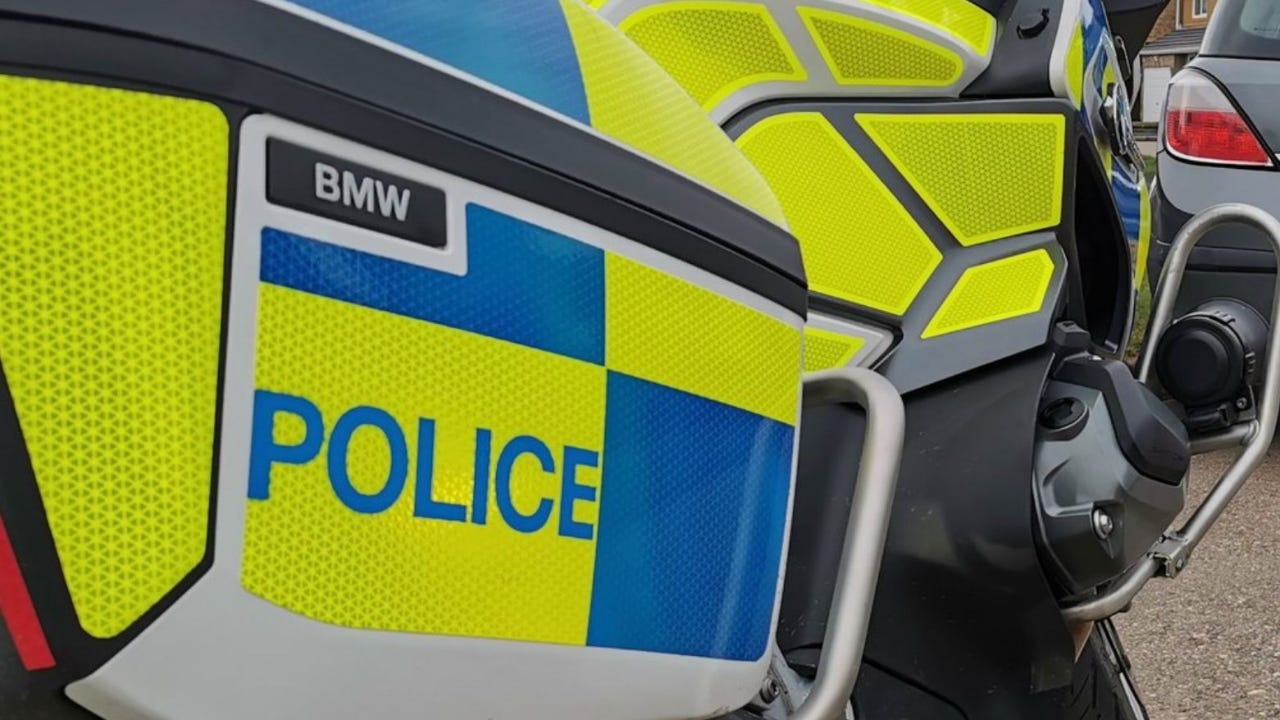From Sunshine Blockers to 'Racist' Dogs: The Most Ridiculous 'Non-Crime Hate Incidents' Wasting Police Time
Exclusive investigation reveals the shocking stories of trivial complaints clogging up the police force
A recent reader poll has exposed widespread frustration with the amount of police time wasted on so-called 'non-crime hate incidents' (NCHIs). These incidents, which fall far short of criminal activity, have drawn officers away from tackling real crime to investigate trivial, often absurd complaints. Readers shared examples highlighting how valuable police resources are being squandered on matters that defy common sense.
This frustration was echoed on our X page, where a poll asked: "Should the police be involved in recording and responding to 'non-crime hate incidents'?" An overwhelming 89.5% of respondents said 'no'. The reasons for such widespread opposition are clear from the incidents shared by officers.
One case involved a caller reporting anti-social behaviour related to a legally parked van, which they claimed was blocking their sunshine and creating noise. It turned out the neighbours were simply moving house. Yet, due to rigid crime recording protocols, this had to be logged and "investigated." Another officer recounted handling complaints about grass clippings blowing onto a lawn, smoke from a neighbour's barbecue, and the noise of swimming in a private pool—describing the endless calls as a reflection of entitlement and trivial grievances.
Other cases included a man alleging his neighbour's legally parked car was a 'hate crime', supposedly motivated by ethnicity, despite there being no evidence. In another example, a disagreement over a gym's cross-trainer escalated to one user squirting water at another, which was initially recorded as an assault before being dismissed as nonsense. The absurdity reached new heights when one complainant insisted a barking dog was acting in a racist manner. Such incidents are not isolated but symptomatic of a deeply flawed system that prioritises recording over rationality.
This waste of thinly stretched police resources is far from trivial. A report by the Policy Exchange think tank revealed that over 13,200 NCHIs were recorded nationally in the 12 months leading up to June 2024. Data from 45 of Britain's 48 police forces showed that these incidents accounted for over 60,000 police hours annually—equivalent to nine hours for every 100 officers. Each NCHI requires, on average, around five hours of police time, involving not just police officers but their supervisors as well.
The consequences of this misallocation are stark. Time spent on NCHIs inevitably detracts from addressing serious crimes such as burglary, rape, and violent offences—all of which appear to be on the increase. The charge rates for these crimes remain unacceptably low, yet officers are tied up investigating whether a neighbour took the wrong wheelie bin. Morale within police forces has also suffered, with many officers viewing NCHIs as a distraction from their core duties. One officer described it as "policing entitlement rather than crime."
Could this be one of the many reasons so many police officers are resigning from the force? And could it also explain why so few people want to join? After all, who wants to join the police so that they can investigate vans parked in a way that blocks sunlight from someone's front room? Most police officers sign up because they want to catch serious criminals and protect children from the very real evil that exists among us.
Inconsistencies in how forces handle NCHIs further highlight the absurdity of the system. Essex Police recorded NCHIs at a rate three times higher than the Metropolitan Police in 2023 and ten times that of West Yorkshire Police. Such disparities raise serious questions about fairness and proportionality in how resources are allocated. Additionally, there is growing concern that NCHIs disproportionately target schoolchildren, potentially stifling free expression in educational settings.
The current guidelines compound the problem. The 2014 College of Policing guidelines require officers to record NCHIs without questioning the validity of complaints—an approach that defies logic and invites misuse. This bizarre framework means incidents can be logged solely based on subjective perceptions, regardless of evidence, leading to the recording of trivial and often absurd cases. Officers have described it as being forced to "legitimise nonsense."
Emergency workers are not immune from such allegations. In one example, a police officer was accused of parking a police vehicle in a discriminatory manner, with the complainant alleging bias against a disabled and black individual. The officer had parked as close to the custody door as the busy car park allowed. Despite the baselessness of the claim, the incident was recorded as a non-crime hate incident and investigated, further highlighting the deeply flawed nature of the current system.
The examples shared demonstrate the urgent need for reform. The current approach to NCHIs undermines public confidence in policing, wastes already stretched resources, and distracts from serious crime. In an era of rising crime and strained budgets, it is imperative that police time is used effectively to address issues that truly matter to communities.
OPINION
The Farce of Modern Policing: A System Strained by Non-Crime Hate Incidents
The police force, traditionally a bulwark against crime, has become a laughingstock due to the absurdity of dealing with so-called 'non-crime hate incidents' (NCHIs). Thanks to the 2014 guidelines from the College of Policing, officers are now bogged down with what can only be described as the policing of pettiness and perceived slights.
Imagine this: police officers, who should be out catching thieves and protecting the vulnerable, are instead dispatched to scenes where the crime is... blocking sunshine with a legally parked van. Yes, you read that correctly. A van moving furniture was accused not of theft or vandalism but of obstructing someone's right to sunshine. This isn't from a Monty Python sketch; it's modern British policing.
Keep reading with a 7-day free trial
Subscribe to ESN Report to keep reading this post and get 7 days of free access to the full post archives.





